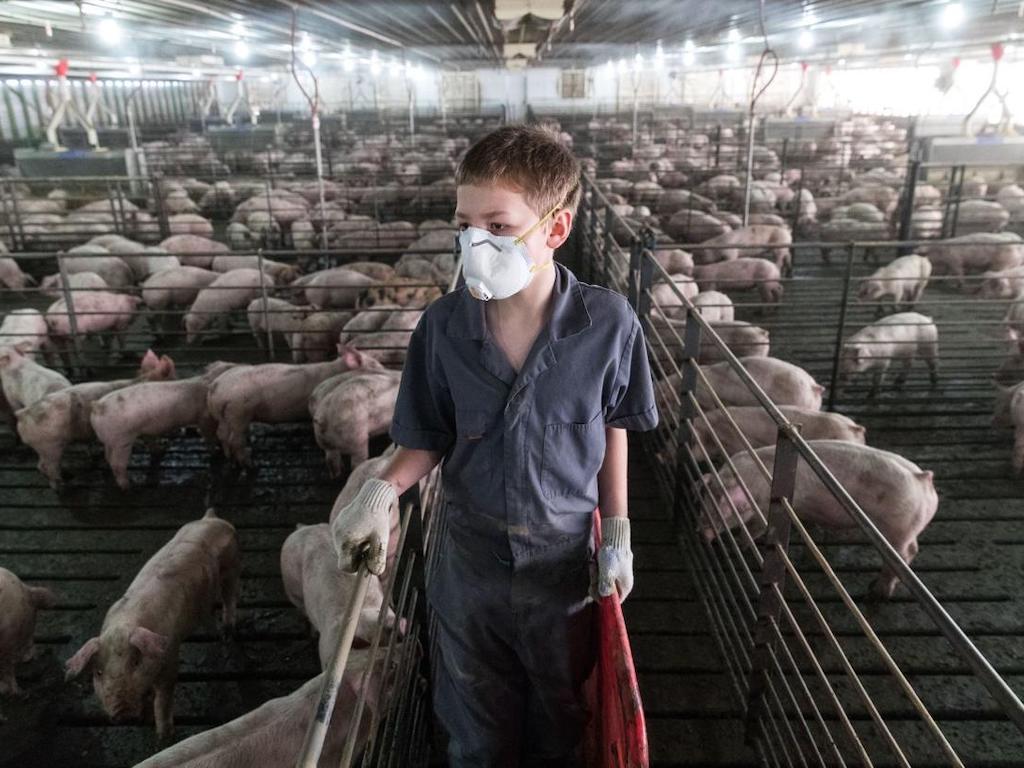4 Mins Read
In a new report on the global food production and biodiversity, experts say that a mass shift to plant-based diets is crucial to combat the degradation of natural habitats and species extinction. Other key “levers” of action to reduce our pressure on wildlife and biodiversity include setting aside more land for nature and a transformation towards sustainable farming.
Academics and experts have called for a redesign of the current global food system that is a “principal driver of accelerating biodiversity loss”. The report, published by international think tank Chatham House and supported by the U.N. Environment Programme (UNEP), hones into three key actions that must be taken to halt the destruction of the natural world.
“Without reform of our food system, biodiversity loss will continue to accelerate. Further destruction of ecosystems and habitats will threaten our ability to sustain human populations,” wrote the researchers.
The number one action that the experts outline is a drastic change in our dietary patterns towards plant-based diets, which would help alleviate the disproportionate impact that animal agriculture is having on biodiversity, land use and global carbon emissions. U.N. statistics show that livestock farming contributes as much as 18% of greenhouse gas emissions, more than the output of all global transport combined, as well as driving unsustainable practices such as deforestation for cattle ranching.

“Such a shift would also benefit the dietary health of populations around the world, and help reduce the risk of pandemics,” said the paper authors.
Further destruction of ecosystems and habitats will threaten our ability to sustain human populations.
Other scientific studies have come to similar conclusions, with scientists pointing out the Paris climate agreement goals are still out of reach without a plant-based dietary shift, even if the world were to put an end to fossil fuels immediately. Another paper notes that drastic cuts in meat and dairy consumption could remove more than a decade of emissions.
In November 2020, a landmark biodiversity report led by U.N. experts said that it is vital to end deforestation and intensive animal farming to “escape the era of pandemics”.
This latest report, released on Wednesday (February 3) was authored by Professor Tim Benton who leads the energy, environment and resources programme at Chatham House, senior research fellows of the same programme Helen Harwatt and Laura Wellesley, as well as PhD student Roshan Pudasaini and PhD candidate Carling Bieg of the University of Guelph.
Two other key “levers” recommended in the paper include protecting more land from conversion or exploitation for agriculture, which will help restore native ecosystems and increase biodiversity, and to promote farming in a “more nature-friendly, biodiversity-supporting way”. This will mean limiting the use of inputs like fertiliser, pesticides, energy, land and water, and putting an end to unsustainable farming practices such as mono-cropping and heavy tilling.
Most notably, the protection and setting aside of land for nature and the shift to nature-friendly farming both depend on dietary change, and will become increasingly difficult to achieve if continued growth in food demand exerts ever-growing pressure on land resources.
It is crucial that these three “levers” of change are implemented together, because they are interdependent, the report explains.
“Most notably, the protection and setting aside of land for nature and the shift to nature-friendly farming both depend on dietary change, and will become increasingly difficult to achieve if continued growth in food demand exerts ever-growing pressure on land resources.”
The researchers added that at the crux of our unsustainable food system is the “cheaper food paradigm” that has emerged over recent decades, where governmental policies and economic structures have pushed forward intensified agricultural production for high-yield, low-cost foods.
However, they believe that global circumstances amid the pandemic can offer an opportunity to reverse these trends, especially as governments look to rebuild from the coronavirus and are set to meet in a series of climate and biodiversity international conferences this year.
“The year ahead offers a potentially unique window of opportunity for food system redesign,” the experts wrote. “Efforts to set in motion a ‘green recovery’ will bring questions of sustainability, equity and societal resilience to the fore, creating new opportunities for joined-up policymaking that affords equal priority to public and planetary health.”
Lead image courtesy of iStock.




